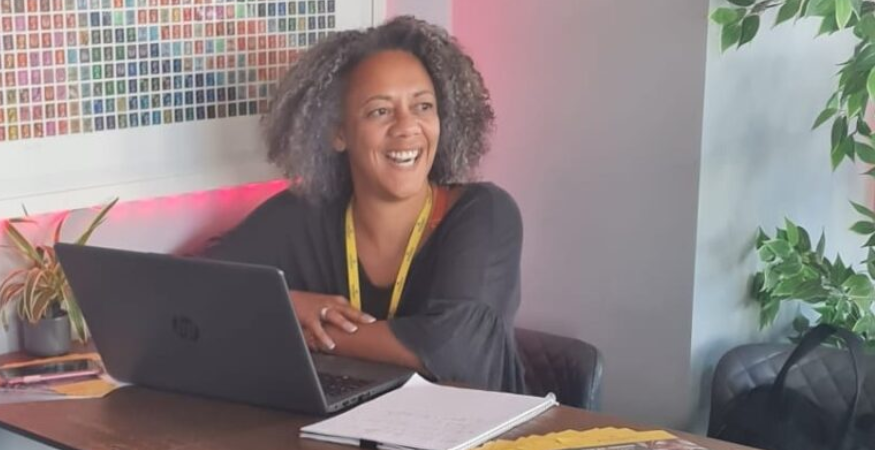
Vicky Haines is the Managing Director of Kingsway Care, one of the top care providers in the UK. Vicky and Charlotte Kidd, Brighton & Hove Living Wage Campaign Coordinator, discuss the care sector, what needs to be changed, and what the future of care could look like.
By Charlotte Kidd
Kingsway Care and its team rally against the stereotypes surrounding care: that it’s low-paid, dead-end work. Kingsway Care recently took the prize for Best Home Care Provider in the UK Home Care Awards, a testament to the dedication and work of their staff. Kingsway Care’s MD, Vicky Haines, goes into detail about the challenges in care, and about how it’s all of our responsibility to lift the sector.
LWC: Tell me a bit about your role at Kingsway Care?
VH: We have a big office team with 9 in the office and 35 caregivers. My role is to work alongside the Registered Manager and make sure everything is running as it should be. We’re heavily regulated by the CQC (Care Quality Commission) to ensure that we tick every box, dot every I, cross every T.
At the same time, we’re only two years old, so we’re trying to grow as well. We’re taking on new caregivers, we’re recruiting constantly. We’re taking on new clients all the time. I look at all areas, that’s it in a nutshell.
What, would you say, are the best and worst parts of your industry?
I think the underlying issue for the care sector is the narrative around care. The fact that it’s considered to be an unskilled role. That prevents lots of people entering into care work. They don’t see the career it could be, they don’t see the professionalism, they don’t see the knowledge and skill that you need to be a carer. So many care services are being bogged down, the demand is huge and growing. But lots of care services are completely restricted by government funding because they dictate how much they’re going to pay for care, and that’s problematic.
But there are loads of positives. The demand for care is increasing, and if you get it right as we have, the quality of care you can provide, and the difference that you can make for your clients is enormous. It’s literally life-changing for them. The smallest thing we might take for granted in our day-to-day lives, we can make that change for our clients, for their families, and their partners. We can encourage and support them to stay in their homes for far longer than they ordinarily would if they didn’t have the care.
And finally, the people that come into care. The amount of skill and knowledge they have is mind-blowing. There are loads of positives.
What practices would you encourage other care providers to employ?
I think there’s been a lot of research done about trying to get more people into the care sector across Europe. And to cut a long story short, the answer isn’t money. Of course, people need to be paid a certain amount, but in some areas where they’ve dramatically increased the salaries and hourly rates the carers ended up dropping their hours. So, they didn’t need all that money. The thing that was most important to them was time and resource. We have a primarily female workforce with only three out of our 35 carers being men. So those people are time poor. They’ve got families, they’ve got houses, they’ve got partners, some have parental responsibilities. So, I would say just support them as much as you can. For example: we try to provide flexible working, so they can do the school run if they need to. And as an office and management team we do care calls, so we can better understand how challenging it can be. Then we can also see if things don’t work, and changes need to be made. Because we don’t ask anybody to do anything we don’t do ourselves.
What’s been your most memorable moment at Kingsway Care?
There’s been many. There’s a realisation, that unless you have a family member who’s been in care, or you’ve worked in care before, the sector is quite unknown. There’s a desperate need and demand. There are a lot of people in hospital who can’t get out because they can’t get a care package. So there’s a sadness really. But we’ve had so many positive memories. Last month we went to the Home Care Awards and won Best Home Care Provider. Which was a massive award for us because we were there last year, and we joked saying that next year we’ll be the Best Home Care Provider, and it actually happened.
What do you still have to learn?
There’s a lot to learn as the MD of a relatively new business. We’re navigating the process with team members for the type of personalities and resources we need. But I think I want to learn about how to have more of a voice within the community about the struggles that the care industry is having. The struggles that all of us will have. Because we’ll all need care at some point. This isn’t just a select group of people, it will happen to you, and it will happen to me. So, we need to make some changes.
Do you have anything to add?
The only thing I’d like to add, refers back to the narrative surrounding care needing to change: it’s down to all of us. It can’t just be the care sector. There’s a large amount of people I speak to on a weekly or monthly basis who are thrown in to panic when their elderly relative needs care and they haven’t ever considered it. And I hadn’t. We plan for funerals, and we plan for college, but we don’t plan for this bit in between. It needs to be more of a community approach, and we need to understand that it’s going to happen to everybody.